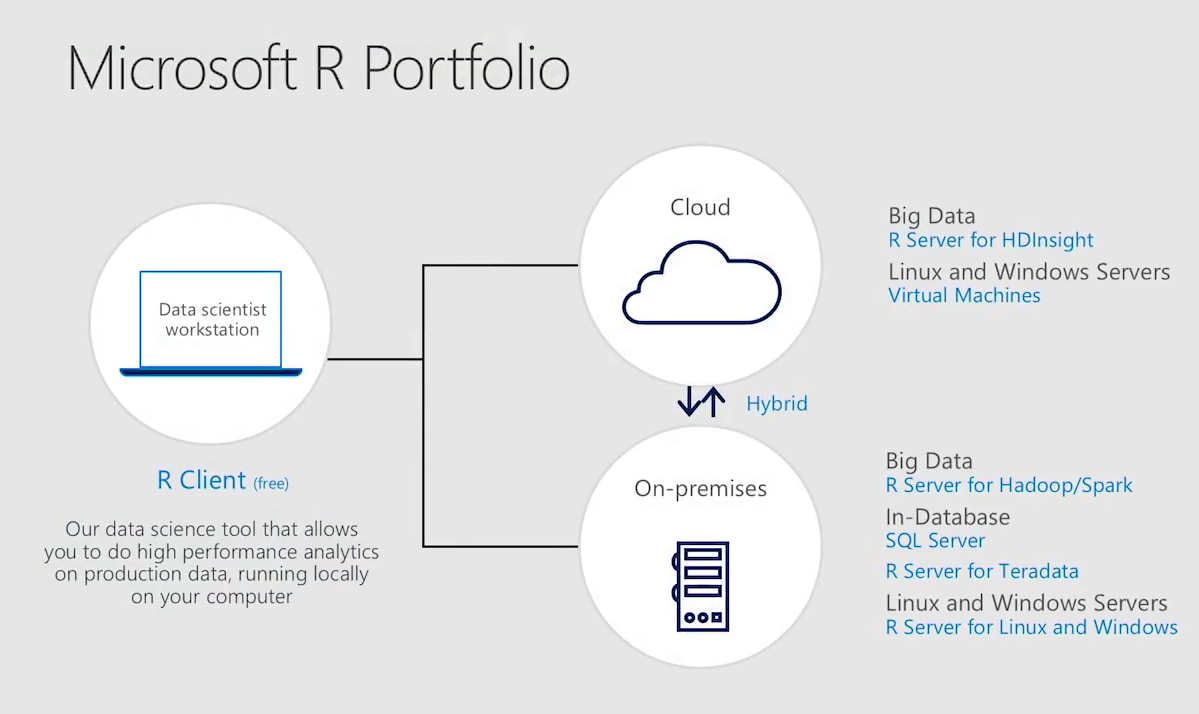| Microsoft R Server 9.1 Adds ML Enhancements |
| Written by Kay Ewbank | |||
| Thursday, 20 April 2017 | |||
|
There's a new release of Microsoft R Server that adds new machine learning enhancements and integration with HDInsight.
Microsoft acquired the R language technology when it took over Revolution Analytics, and since then has been developing a range of products based on the statistical analysis language. The new release adds several advanced machine learning algorithms from Microsoft, along with pretrained neural network models for sentiment analysis and image featurization. It also adds support for SparklyR, SparkETL, and SparkSQL, and GPU for deep neural networks. For developers, R Tools for Visual Studio can be used to write apps that work with Microsoft R Server, and there's an Azure Microsoft R Server VM image that can be used to provision the server on the cloud. Another improvement to the new version is the ability to use MicrosoftML for Spark and Hadoop. MicrosoftML was added to Microsoft R Server 9.0. It adds machine learning algorithms and data transforms. Those facilities have been made more portable and distributed to run on Linux, Windows, and the most popular distributions of Hadoop, specifically Cloudera, Hortonworks, and MapR. Support for Spark was added when R Server 9.0 was released in December.
The algorithms that can now be used for Spark and Hadoop are
A new function has also been added to enable 'pleasingly parallel' R computations to be carried out on partitions of a dataset. Pleasingly Parallel means you run massively parallel computations on partitions that are grouped by one or more attributes. The The addition of sentiment scoring and image featurization functions are the result of deep neural network models trained by Microsoft Research. The functions mean you can now calculate a sentiment score for English text, giving you a result from "very positive" to "very negative". Image featurization lets you take an image and have it represented as a collection of numeric variables, based on ResNet recognizers. These values can then be used as the basis of a predictive model. Another key improvement in the new version is interoperability between Microsoft R Server and sparklyr. RStudio's sparklyr is an R interface to Apache Spark that lets you use Spark as the backend for the data manipulation package dplyr. Sparklyr also provides a way to query data in Spark using SQL. Microsoft R Server and sparklyr can now be used in tandem within a single Spark session. so you can use all the features of Microsoft R Server advanced Machine Learning algorithms on data prepared using the dplyr grammar. There's also an updated version of the Microsoft R Client that has the same analysis options for local use, and is now available for Linux as well as Windows. Alongside the support for Hadoop in R Server, Microsoft has announced that from SQL Server 2017, you'll be able to use Python code for in-database analytics and machine learning. What was called R Services has been renamed as Machine Learning Services, and R and Python are two options under this feature.
More InformationRelated ArticlesMicrosoft Unveils Free R Server
To be informed about new articles on I Programmer, sign up for our weekly newsletter, subscribe to the RSS feed and follow us on Twitter, Facebook or Linkedin.
Comments
or email your comment to: comments@i-programmer.info |
|||
| Last Updated ( Friday, 21 April 2017 ) |



